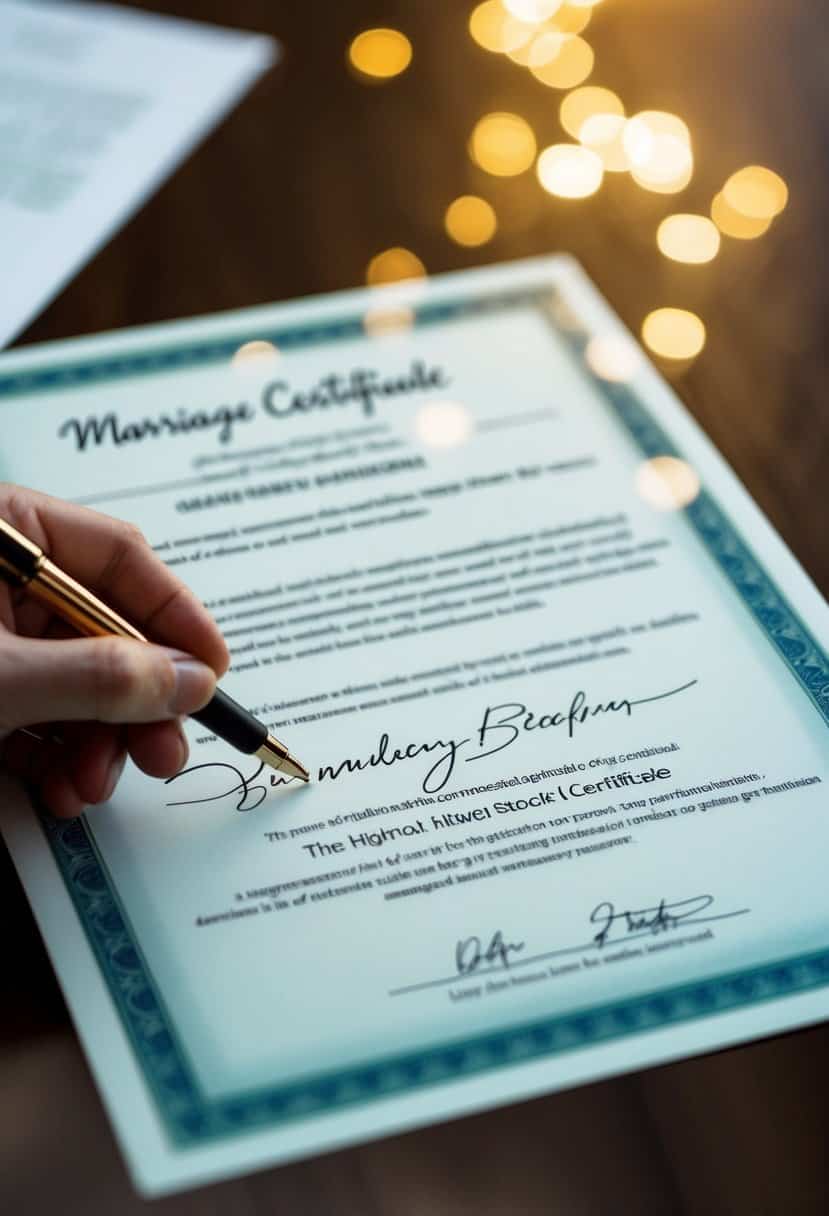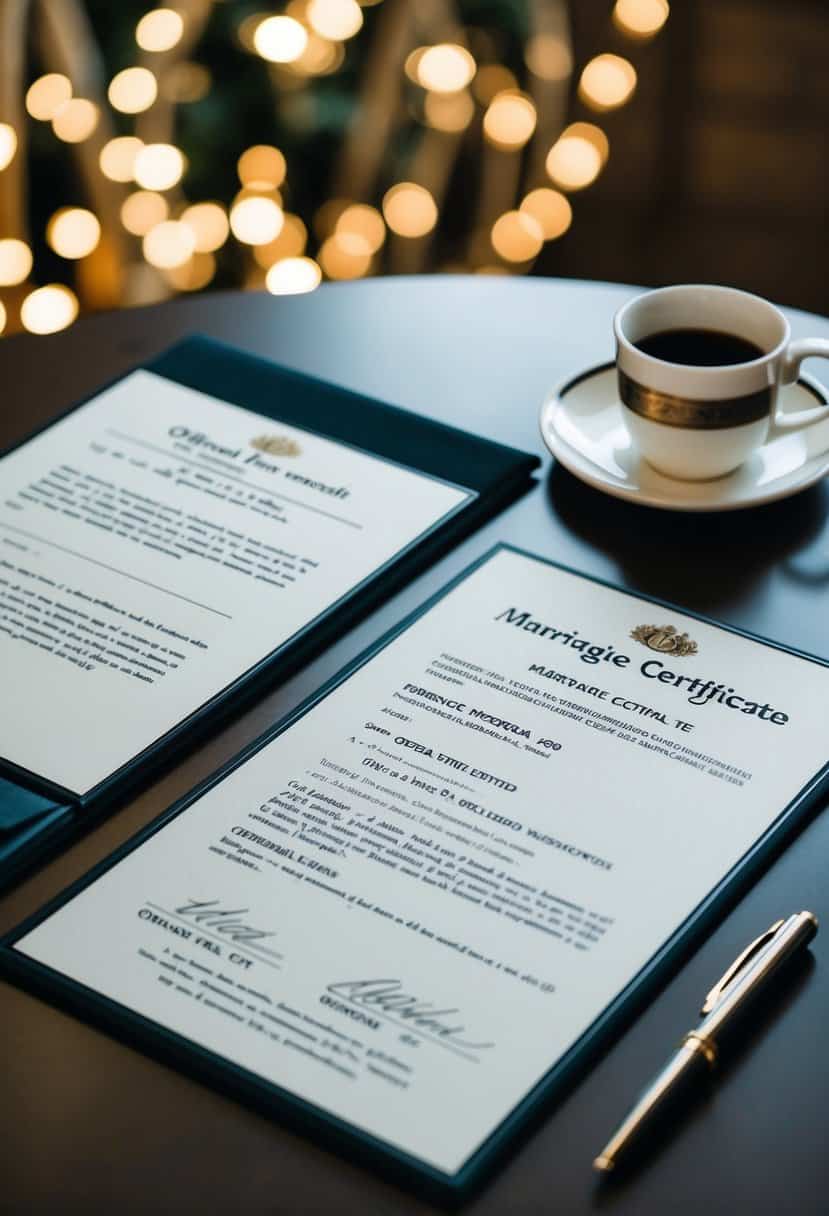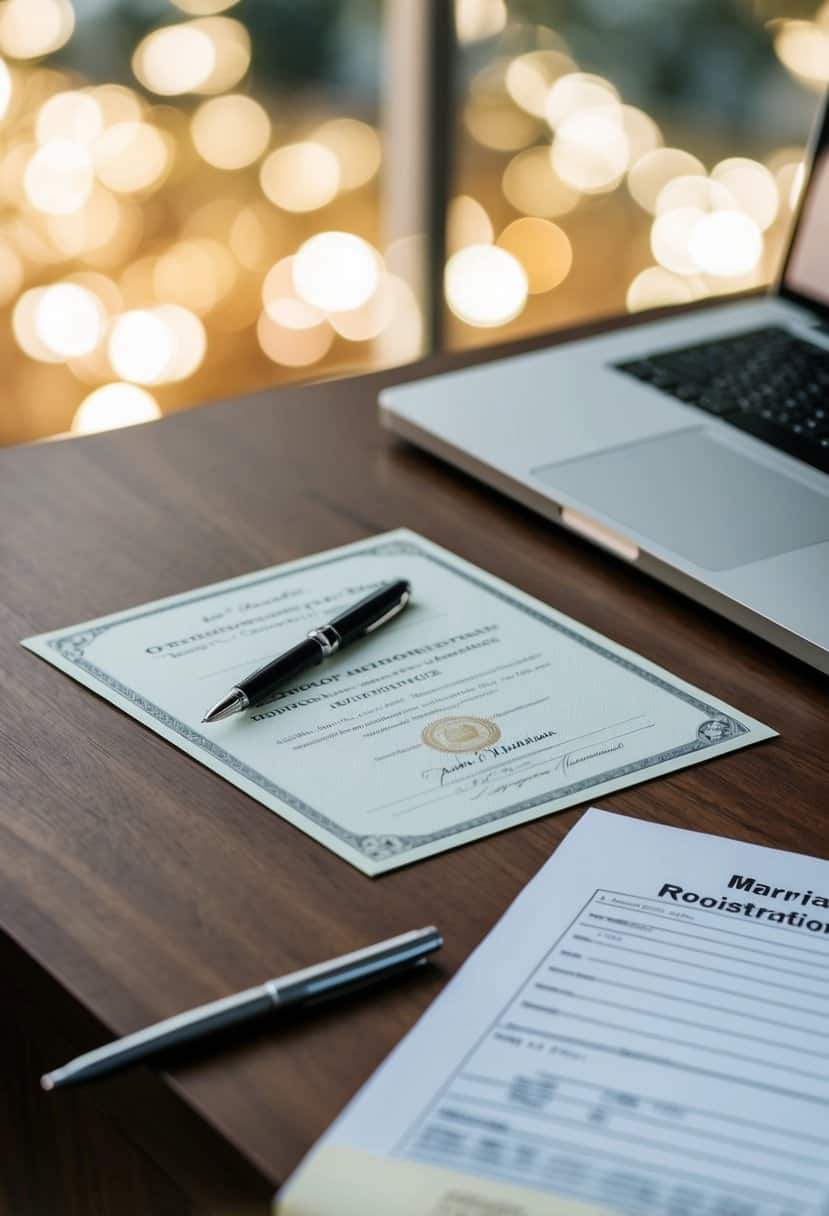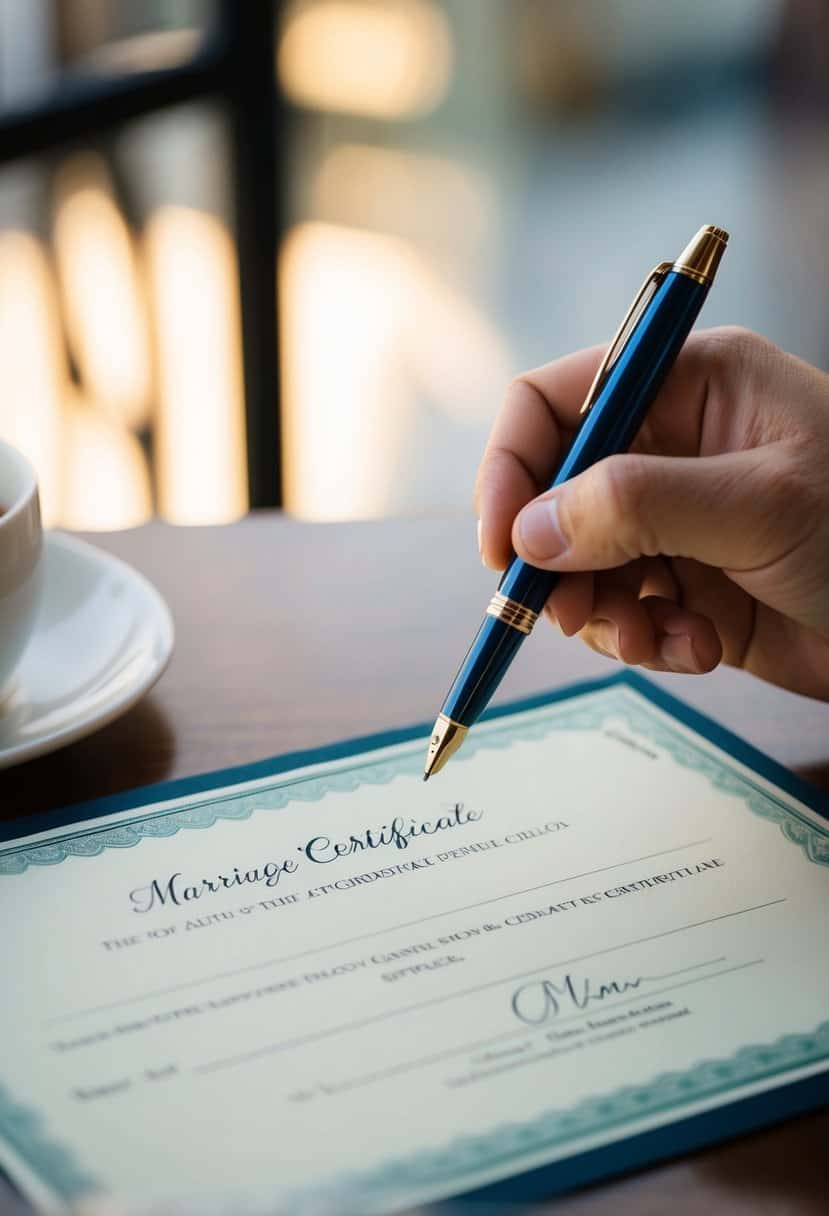Can You Get Married by Just Signing Papers in the UK? A Simple Guide
Thinking about tying the knot in the UK can bring up many questions. One common question is whether you can skip the ceremony and simply get married by signing some papers.
In the UK, you can’t just sign papers to get married. A legal marriage involves a ceremony with certain formalities, even if it’s just at a registry office. This means you’ll need to exchange vows and have witnesses, even in the simplest form of marriage.

Wondering about what kind of ceremony you might need? In a registry office, the ceremony is straightforward and legally binding as long as it includes the necessary elements. This setting might be appealing if you’re looking for something low-key, but keep in mind that there are still legal requirements to meet.
If the idea of a formal wedding with all the bells and whistles doesn’t suit you, remember that the UK offers options like registry office weddings that can keep things simple and intimate without forgoing the essential legal aspects.
Legal Requirements for Marriage in the UK

In the UK, getting married involves specific legal steps. You’ll need to give notice of your intention to marry and provide proof of identity and eligibility. These steps ensure that all legal requirements are met and protect your rights.
Giving Notice of Intention to Marry
Before you can get married, you must give notice at your local register office. This notice must be given at least 29 days before the wedding. Both you and your partner need to provide this notice in person. It’s a way to declare your intentions and allows time for any legal objections to be raised.
When giving notice, you will be asked for details, including your names, ages, and occupations. You’ll also need to state where you plan to marry. Consider contacting your local office to confirm their specific requirements and make an appointment.
Proof of residency in England or Wales is required. If you or your partner is from outside the UK or Ireland, you may need additional documentation or a specific visa type. Check all paperwork requirements well in advance to avoid any delays or complications.
Proof of Identity and Eligibility
To marry in the UK, you need to provide several documents. These include proof of name, age, nationality, and address. A valid passport or national ID card serves as solid proof of identity. For proof of age, your birth certificate or passport will suffice.
If you have EU settled or pre-settled status, bring evidence from the EU Settlement Scheme to show your eligibility. It’s crucial to verify that both partners have the mental capacity to enter into marriage, ensuring you understand the commitment involved.
Remember to check that all documents are up to date and in good condition. Some offices may require certified translations if any of your documents are not in English. Proper preparation ensures a smooth process when it’s time to give notice and get married.
Types of Marriage Ceremonies

In the UK, you can choose between different types of marriage ceremonies, each with its own requirements and style. Whether you are considering a civil ceremony or a religious ceremony, understanding these options will help you decide what suits you best.
Civil Ceremonies
A civil ceremony is a non-religious event that is legally recognized and can take place at a registry office or a licensed venue. You and your partner will need to sign the marriage schedule or marriage document, which legally binds you as a couple.
Civil ceremonies allow for more flexibility in terms of location and ceremony wording. You can often personalize vows, making the day special and meaningful. Many couples appreciate the simplicity and the ability to focus on their personal commitment.
These ceremonies are inclusive of all couples, including those in a same-sex marriage. While religious elements are not part of the ceremony, a religious blessing can be arranged afterward if desired.
Religious Ceremonies
Religious ceremonies are held in places of worship and follow traditional practices specific to each faith. These ceremonies can include specific prayers, hymns, and rituals, depending on your religion. You might also be required to have certain pre-marital sessions or approvals from your religious body.
In these ceremonies, the wording and vows usually follow a set sequence according to religious customs. While personal touches might be limited, the spiritual and communal aspects are often deeply fulfilling.
If you wish, you can also convert a civil partnership into a religious marriage. Some faiths allow this through a religious blessing combined with the civil formalities.
Marriage Venues and Officials

In the UK, getting married involves choosing a suitable venue and having the ceremony conducted by an authorized official. These officials might be registrars or religious leaders, and where the ceremony can take place is determined by specific regulations.
Approved Venues for Marriage
You can choose from a variety of venues for your marriage in the UK. The most traditional option is a local register office, where you can hold a simple and straightforward ceremony. If you’d prefer something different, many approved venues include hotels, castles, and other charming locations.
These approved venues must have a special license to host weddings. Whether you’re thinking about a rustic barn or a grand manor, it’s crucial to ensure the venue is legally recognized. This allows for a legally binding ceremony. For couples dreaming of a more unique celebration, a destination wedding might be just the answer, though it needs to comply with legal requirements.
Role of Registrars and Religious Leaders
Registrars play a central role in UK weddings. They are responsible for conducting civil ceremonies, primarily at registry offices or approved venues. Their presence ensures that the marriage is legally registered. If you’re planning a registry office wedding, you’ll need to book a registrar to lead the ceremony.
For religious ceremonies, religious leaders such as priests or ministers can officiate. These leaders must be authorized and recognized by law to perform marriages. Some religious venues also work with registrars to ensure compliance with legal standards. Whether your wedding is civil or religious, these officials ensure your union is recorded and recognized officially.
The Marriage Certificate and Registration

Getting your marriage officially documented in the UK requires certain steps to be followed. You’ll need to complete the paperwork to obtain your marriage certificate and ensure your marriage is entered in the marriage register.
Obtaining the Marriage Certificate
To get your marriage certificate in the UK, you start by applying for a marriage license. This usually requires giving notice at your local register office at least 29 days before your ceremony. You need to provide documents like passports or birth certificates as proof of identity.
After your wedding ceremony, the officiant will file paperwork with the local register office. Once everything is verified, your marriage certificate is issued. This document serves as official proof of your marriage. For further details, you can visit the GOV.UK website.
Entering the Marriage Register
The marriage register is an essential record in the UK, documenting the legal specifics of your marriage. At your ceremony, you and your partner will sign this register in the presence of two witnesses and the officiant. This confirms your consent to the marriage.
It’s important to note that the officiant must be an authorized person, like a registrar. Once you sign, your marriage details are entered into the official records. This step ensures your marriage is legally recognized in the UK. The entry into the marriage register is part of what will ultimately lead to the issuance of your marriage certificate.
After the Marriage

Getting married in the UK involves signing legal documents and, in many cases, exchanging vows. Once you’re married, there are several important steps to handle to make sure everything is officially updated.
Changes to Personal Documents
After tying the knot, you’ll need to update various personal documents. Your driver’s license and passport should reflect any name changes, and you’ll want to contact the DVLA or the Passport Office to start this process. Having your marriage certificate ready will help make these changes smoother.
Bank accounts and other financial records should also be updated to acknowledge your marital status. Additionally, consider updating your Social Security details, as this might be relevant for tax purposes or benefits. Keeping your identification and financial records current can prevent future complications.
Legal Considerations for Married Couples
Marriage in the UK also has significant legal aspects. You might want to think about drafting or updating your will. This ensures that your assets are distributed according to your wishes.
Your legal obligations may have shifted, so consider these changes carefully.
It’s also worth noting that in the UK, after legally signing the marriage papers, some couples choose to have a religious blessing or ceremony afterward, allowing them to exchange vows in the presence of family and witnesses.
This can provide an opportunity for a personal celebration after the formalities are complete. If you’re interested, you can find guidance on planning a ceremony in England and Wales.


